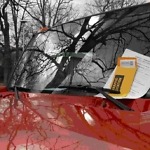Benefits of Residential Parking Permits
For the benefit of residents, businesses, and visitors, municipalities have what we call Resident Parking Zones (RPZs). Streets, areas or bays, RPZs are places where parking is restricted or controlled using ‘residential parking permits’. The purpose of these permits is to regulate parking, minimize highway obstruction and give residents priority over available spaces. Enabling them to park close to their residence.
What residential parking permits do
All concerned individuals should be clear about what residential parking permits do, and don’t do. While residential parking permits give residents priority over available spaces, they do not provide a dedicated parking space. In fact, restrictions such as locations eligible for use and the number of permits issued per address apply to them.
Anyone with a resident parking permit (RPP) can park their vehicles in an available parking space in their specified zone . This is the zone where a person’s property is located. Generally, RPPs are valid for either a 6-month period or a 12-month period. If a person uses or keeps a motor vehicle, then he is eligible to apply for a permit if the RPZ scheme includes the street where he lives.
In case a person does not own a vehicle but has one under his ‘care and control,’ he will have to produce the registration documents and a letter from the registered owner stating that the person has permanent use of the vehicle to get the RPP. However, all residents in an RPZ are able to apply for a resident parking permit. So, we know what residential parking permits do, but what are the benefits of using a residential parking permit scheme? Let’s find out.
The benefits of a residential parking permit scheme
In some zones, residents need to have resident permits displayed on their cars to receive the benefits of this parking preference. Signs on affected streets indicate the zones where these permits are required. Parking enforcement officers patrol the restricted parking areas or the resident parking zones. If there isn’t a permit displayed in the windscreen, they use a handheld device to check against the database if a valid permit covers the vehicle.
In case of a virtual car parking permit scheme, changes happen in real time. Meaning that if a new permit is issued or if the active vehicle changes, officers receive notification instantly, and the parking database updated immediately. However, parking enforcement officers won’t be able to locate the details of a vehicle if vehicle registration plate is entered incorrectly in the online permit system. This means that there are some limitations to a virtual car parking permit scheme as well.
Nonetheless, it is a modern enforcement solution that gives parking priority to residents. It ensures a convenient, more efficient parking enforcement.
Technology helps Bylaw enforce residential parking permits easier
Once the rules are in place to protect the residents the next step to the process is the efficiency of your enforcement.
If you have a small area of residential permitting, the neighborhood next to a Hospital or local College or University, then you could likely get away with routine foot patrols in the pressure zone, using a handheld device for violations that offers auto-chalking. Better yet, a handheld device that has auto-chalking, sharing information in real time to all of your patrol officers’ enforcement devices for accurate real-time information.
If you have a large area of residential permitting than the best enforcement will come from a mobile patrol, License Plate Recognition solution that can identify the legal and illegal parkers while cruising along at a comfortable speed, stopping only to issue violations.
Modern solutions exist both for protecting your residents and simplifying the enforcement process involved. The time and money you will save from the approach will far outweigh the expense of putting the solution in place.


